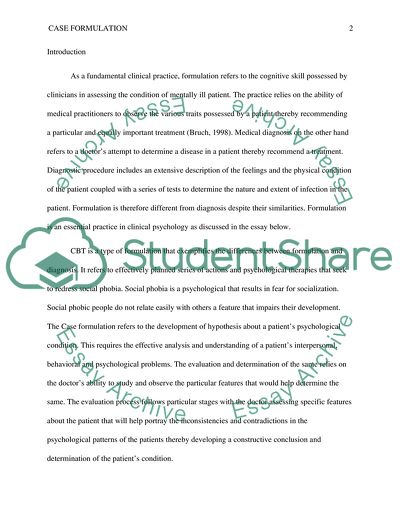What is formulation, as used in clinical psychology practice, and how Essay. Retrieved from https://studentshare.org/psychology/1627714-what-is-formulation-as-used-in-clinical-psychology-practice-and-how-does-it-differ-from-diagnosis
What Is Formulation, As Used in Clinical Psychology Practice, and How Essay. https://studentshare.org/psychology/1627714-what-is-formulation-as-used-in-clinical-psychology-practice-and-how-does-it-differ-from-diagnosis.


